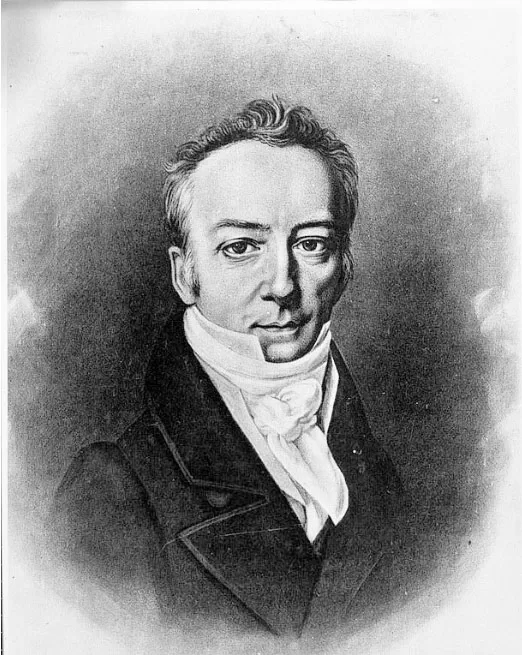
by Paula John
Occasionally, I receive information about people we know by fame but not always in our face daily.
If you have ever been to our nation’s capital or wished you had, you have heard about the complex of buildings known as The Smithsonian Institution. The entire complex consists of 21 museums, 21 libraries, the National Zoo and many additional research and educational centers. It is the largest such complex of this preserved heritage, shared and new knowledge in the world. But who was Smithson?
James Smithson (born James Lewis Macie) was a British scientist who became the Duke of Northumberland. His inheritance came from his mother because as an illegitimate son, he was not recognized by his father.

James Smithson
c. 1765 – 1829
founding donor of the Smithsonian Institution
Smithson became quite famous in his own right and travelled the world – but never came to the United States. He never married nor had children, so left his entire estate to is nephew, Henry James Hungerford. His will contained an unusual clause: “If Hungerford died without legitimate or illegitimate heirs, Smithson’s estate would be set aside for the United States ‘to found at Washinton, under the name of the Smithsonian Institution, an establishment for the increase and diffusion of knowledge among men.’”. Hungerford lived six months after Smithson’s death but left no heirs.
Thus, one of most magnificent systems of buildings and heritage in the capital of the United States came from a wealthy noble Englishman.
To possibly explain why his fortune came to the USA rather than stay in the land of his birth, he once wrote: “The best blood of England flows in my veins. On my father’s side I am a Northumberland, on my mother’s I am related to kings, but this avails me not. My name shall live in the memory of man when the titles of the Northumberland’s and Percy’s are extinct and forgotten.” His illegitimacy was to sting him his entire life.
Benjamin Franklin is much more familiar to Americans. We recognize him as a Founding Father, a scientist and inventor, a postmaster, a printer, and author of many works, even a stove bearing his name. However, did you know that Franklin also created an alphabet?
Benjamin Franklin
1706 – 1790
American author, scientist, and statesman

Many of our Founding Fathers were true men of the Enlightenment. They relished in reading, creating, challenging – each other and life in general. Keeping true to his mind and time, Franklin did not call his creation of letters an alphabet. He named it a “Reformed Mode of Spelling.”
To my thinking, he hit a bullseye on the difficulty with the alphabet – spelling! I’ve taught 6th grade through high school (as well as years in adult training), and spelling is a real bug-a-boo. Even adults struggle. Franklin’s alphabet had each letter pronounced one way. Such as the “c” is no longer both soft (citrus) and hard (candy). He took the “c” out of his alphabet, along with j, q, w, x, and y.
Why he left the “g” alone is beyond me. The “g” in our alphabet can be soft (ginger) or hard (gangrene) or silent (neighborhood).
He believed that his alphabet with those 6 letters removed, and the addition of 4 new consonants and 2 new vowels was superior. His solution to knowing if the vowel was to have the long sound was to double it (caane). Franklin considered his alphabet to be of “a more natural order” because it consisted of “sounds formed by the breath, with none or very little help of the tongue, teeth, and lips; and produced chiefly in the windpipe.”
If you have ever had to read something written more phonetic than alphabetic, you will understand his test letter to the daughter of his London landlady:
“ɥi am, mɥi diir frind, iurs afeks̸ɥnetli, B. Franklin”
Translated: I am, my dear friend, yours affectionately, B. Franklin.
Maybe it is just me, but I notice an inconsistency in Ben’s phonetic system. If doubling the vowel gives it a long sound; then, how can “diir” become dear and not dire? Just sayin’.
Likely, this is one reason that it never caught on with the public. What we have is confusing enough with rules aplenty.
Here we have two men. The first, an Englishman of noble birth who never came to the United States, yet his wealth (both inherited and earned) created a symbol of American heritage preservation and endowment of knowledge and education for all time. The second, someone born in the English colonies of very humble birth who later was imperative in the independence of the English colonies to become the United States of America, as well as being an important player in its governmental foundation.
These men looked beyond their present to provide for an unknown future that we and our children’s children will benefit. How great is that!

Leave a Reply
You must be logged in to post a comment.